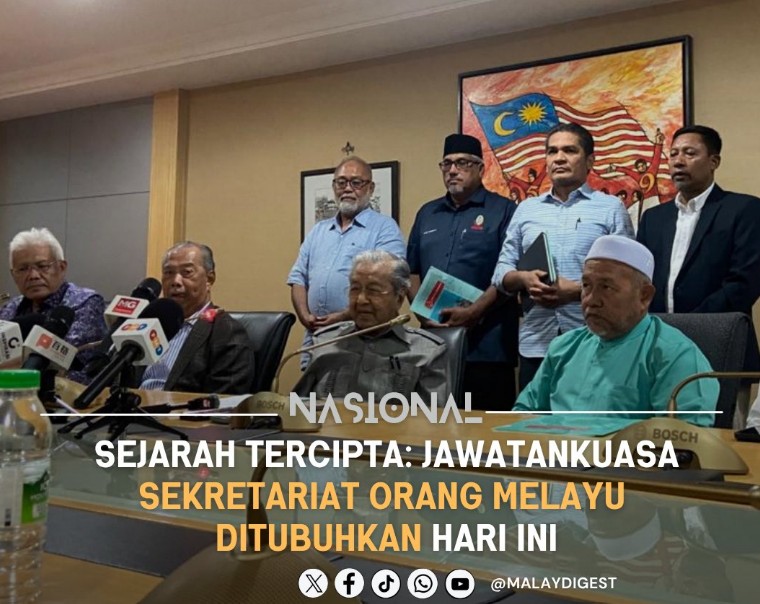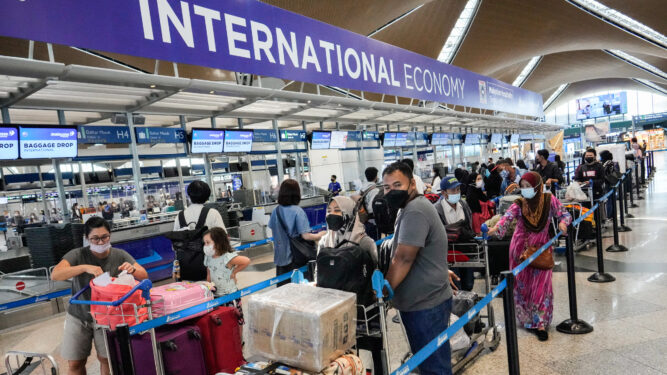WHETHER the Malaysia Agreement (MA63) is sufficient to address the grievances of Sabah and Sarawak or there is need for a new agreement or even a supplementary agreement needs to be debated.
In any case, the recent amendments to the MA63 came about after long time. They would not have materialised if not for the development of centrifugal tendencies leading to some attempts to envision the future of these territories without Peninsular Malaysia.
And I am not sure why there is need to have a new agreement replacing the old MA63, unless of course, the old is ossified to the extent it serves no purpose in terms of addressing the rights of the people in Sabah and Sarawak.
After the recent amendments to MA63, nothing has significantly changed to make the agreement with its amendments capture the dynamics of the two Borneo territories.
Is this the reason why the UMNO deputy president Datuk Seri Mohamad Hasan had envisaged a new agreement for the two territories?
Or is this another election gimmick by UMNO to capture the hearts and minds of the people of Sabah and Sarawak, especially in anticipation of GE15?
Or could it be that the old agreement which brought the territories together might not be relevant in terms of addressing the rights of the people in the two territories in the new era?
Singapore might have left the federation and Britain might not be party to the agreement but are these reasons good enough for a new agreement to be signed so that it captures the dynamics of the three principal entities namely Peninsular Malaysia, Sabah and Sarawak?
If the old agreement, with its amendments, are not sufficient to address the needs of the federation’s future, then a new agreement might be needed.
However, another Sabah politician, Parti Bersatu Sabah (PBS) president Datuk Seri Maximus Ongkili said that the old agreement is sufficient but there might be a need for a supplemental agreement, something that would give force to the old one, namely MA63.
However, Law Minister Datuk Seri Wan Junaidi Tuanku Jaafar has rubbished the claims for a new agreement to supplant the MA63 saying that the original agreement is more than sufficient to cover the long standing issues affecting both the Borneo territories.
Whether there is need for a new agreement to replace the old one, or supplemental agreement or it makes sense to the stick to old one, no sufficient arguments have been mounted to address the respective positions.
The territories waited for some time for the amendments, but now all of a sudden, there is talk of the need for new agreement or even supplemental one.
Political will is lacking
The real question here is why is there the need to move beyond the old agreement. What is wrong with the old one? Why was this not addressed at the time when the constitutional amendments were made just few months ago?
There is a need for concrete arguments to buttress this point of view.
Wan Junaidi, as a politician, must be sensitive to the needs of the two territories and rejecting arguments in favour of a new deal is not the way to go about.
What might be said in the present move to go beyond the MA63 must be viewed in the larger context of unfulfilled expectations on the part of the people in these two Borneo territories.
Ultimately, whether it is same old agreement or new deal or supplemental one, the question is whether there is a political will to address the lost rights of Sabah and Sarawak.
Federalism in the true sense of the word is not about centralisation but the devolution of power to administer justice and democracy. – July 11, 2022
Prof Ramasamy Palanisamy is the state assemblyperson for Perai. He is also deputy chief minister II of Penang.
The views expressed are solely of the author and do not necessarily reflect those of Focus Malaysia.
Pic credit: Ask Legal









